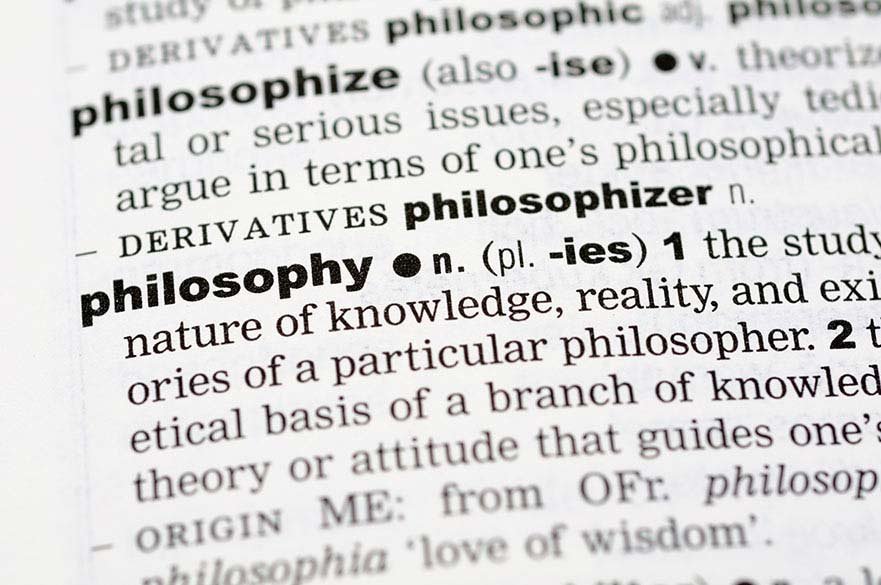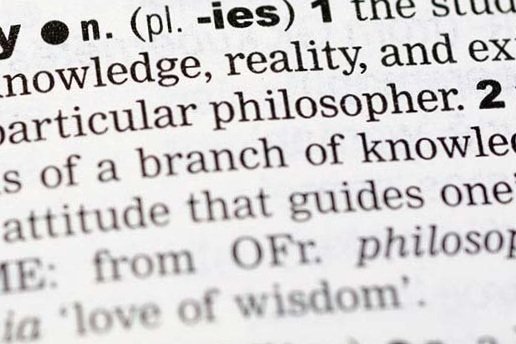
Introduction to Philosophy

Introduction to Philosophy
Philosophy can be understood as “thinking about thinking”, in other words trying to work out why and how we think about anything. Studying philosophy means thinking about thinking in a reasoned and systematic way rather than in an arbitrary, casual and reactive way. Whichever subject that we’re interested in - physics, sociology, artificial intelligence, law, literature, medicine, mechanical engineering, whatever - is based upon and therefore can be illuminated by basic philosophical enquiry. Learning how to ask questions, how to use and develop concepts, how to reason carefully, how to identify and use theories is helpful for all kinds of enquiry.
So this course provides a brief introduction to three of the main fields of philosophy, namely questions of knowledge (epistemology), questions of existence (ontology/metaphysics) and questions of ethics (values). As is common in most fields of study you’ll come across a technical or specialist language which often feels alien and intimidating. For example, the term ‘epistemology.’ What on earth does that mean ?!! How do you even say it ? [eh - pist - eh - mol - ow - gee]. These seemingly abstract terms, believe it or not, are very useful shorthand for otherwise complex ideas. In order to introduce and make useable these technical terms, this course will use everyday examples of how we are all already thinking epistemologically, thinking about ontology, thinking about ethics even though we might not be aware of it.
Why would this course be useful to me ? One reason is that many problems in the world and those that we encounter in our daily lives are generated when we talk at cross-purposes, when we do things on the basis of genuine misunderstandings, when we irritate others because we meant X but the other person thought that we meant Y, and when we disagree on what we thought that we’d promised one another. How much better if we could understand, explain and clarify in a systematic way how we think about the world.
Crucially, the study of philosophy is not about telling you what to think, but about exploring how we think and how the different ways we think about the world has consequence.
Seminar 1 (3rd & 10th October) Course introduction : Facts, beliefs and misconceptions.
Seminar 2 (17th & 24th October) Introducing epistemology : What is knowledge ? How do we know things ?
Seminar 3 (31st October & 7th November) Introducing ontology : What kinds of things exist ?
Seminar 4 (14th & 21st November) Introducing ethics : How should we act and behave ? What is right and wrong ?
Seminar 5 (28th October & 5th December) More introductions : ethics in political philosophy.
(Dates of sessions/seminars in Leverburgh and Tarbert respectively)
-
-
How does the course work ?
Introduce your lesson with an optional, short summary. You can edit this excerpt in lesson settings.
Introduce your lesson with an optional, short summary. You can edit this excerpt in lesson settings.
-
Seminar 1 : Facts, beliefs and misconceptions.
Introduce your lesson with an optional, short summary. You can edit this excerpt in lesson settings.
Introduce your lesson with an optional, short summary. You can edit this excerpt in lesson settings.
-